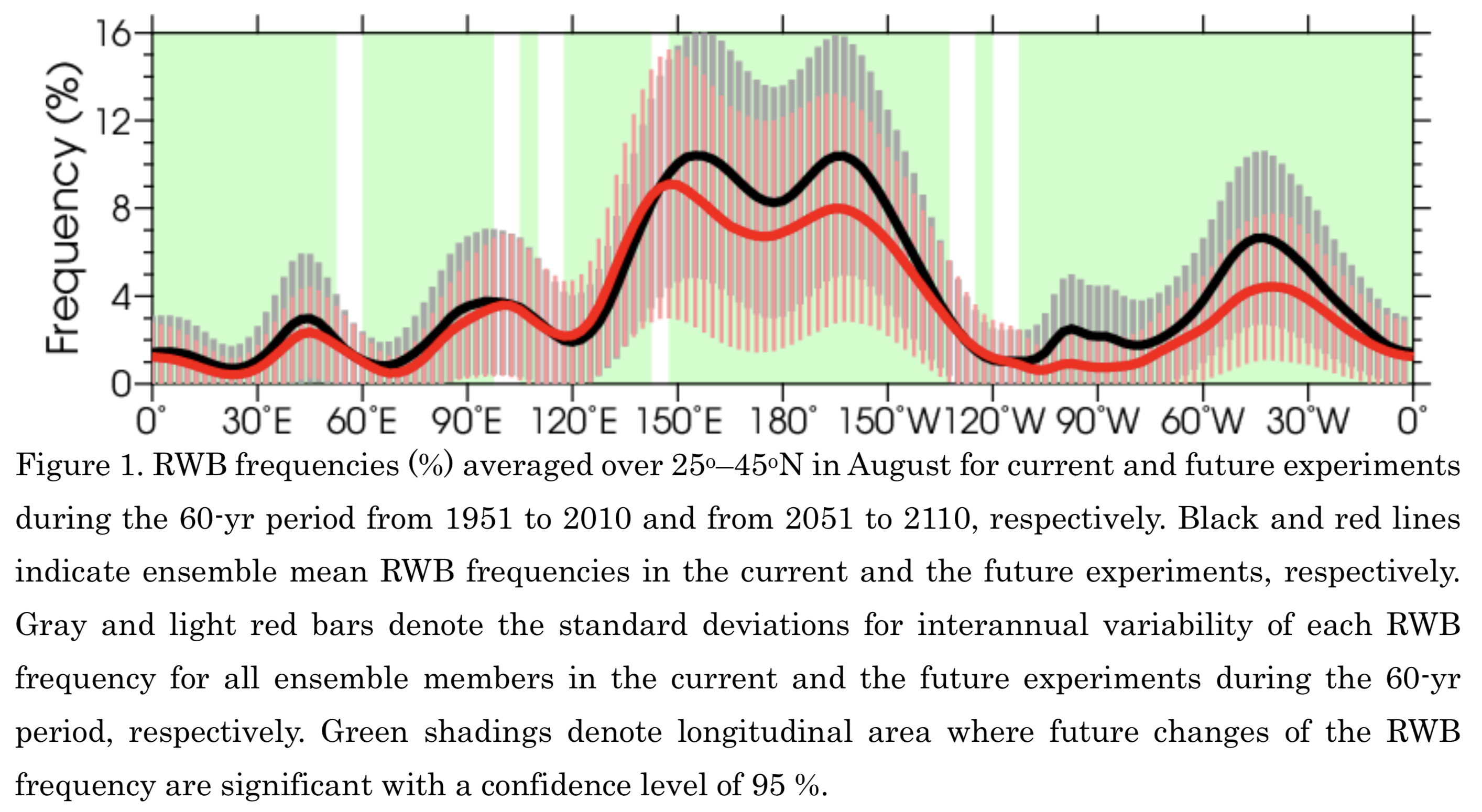Graphical Abstract
Takemura, K., H. Mukougawa, and S. Maeda, 2021: Decrease of Rossby wave breaking frequency over the middle North Pacific in boreal summer under global warming in large-ensemble climate simulations. J. Meteor. Soc. Japan, 99, 879-897.
https://doi.org/10.2151/jmsj.2021-042
Graphical Abstract
Published
Plain Language Summary:
Future change of Rossby wave breaking (RWB) frequency over the middle North Pacific (MNP) in August under global warming and related features of large-scale atmospheric circulation are examined using large-ensemble simulations of current and future climates with a global circulation model. The main findings are summarized as follows.
Highlights:
- The RWB frequency in the future climate shows significant decreases over the MNP, compared to that in the current climate.
- The large-scale atmospheric circulation in the upper troposphere in the future climate indicates a significant weakening of the Asian summer monsoon circulation and the consequent southward shifted Asian jet, resulting in the decreased RWB frequency over the MNP through reduced diffluence and deceleration of the jet over the region.
- Rossby wave propagation over Eurasia and the North Pacific in mid-latitudes is also clearly reduced in the future climate, consistent with the decreased RWB frequency over the MNP.
- Correlation analysis and quasi-geostrophic diagnosis further indicate that the decreased RWB frequency over the MNP has a dynamical impact on suppressed convective activities east of the Philippines in the future climate, through the weakened extension of the Mid-Pacific trough and the consequent weakening of dynamically induced ascent east of the Philippines.







